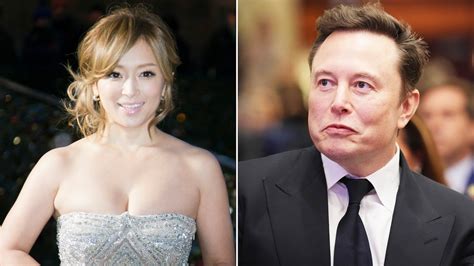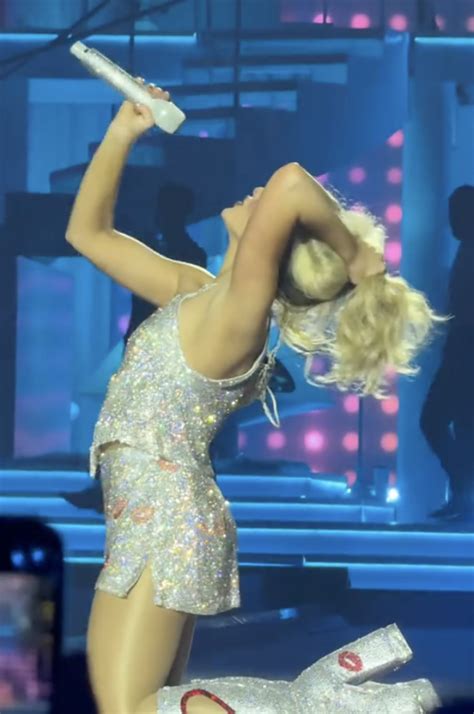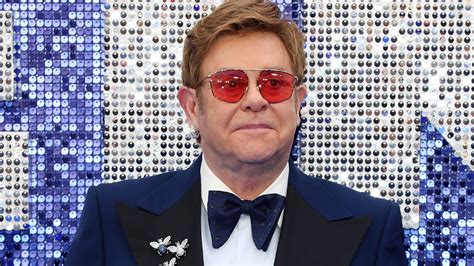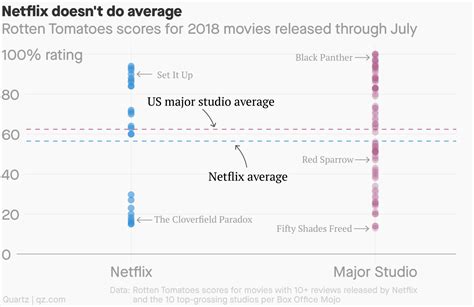
Japanese pop star Sayumi Michishige has publicly denied rumors circulating online that she is the mother of Elon Musk’s youngest child, Techno Mechanicus, putting an end to a bizarre and unfounded internet conspiracy theory. The former Morning Musume member addressed the speculation directly, stating firmly that the rumors are “completely false” and “utterly groundless.”
Tokyo – In an unexpected turn of events, Sayumi Michishige, a prominent figure in the Japanese pop music scene and former member of the popular idol group Morning Musume, has issued a definitive denial regarding rumors linking her to Elon Musk as the mother of his youngest child, named Techno Mechanicus. The rumors, which gained traction across various social media platforms and online forums, alleged a secret relationship between the J-Pop star and the tech mogul, culminating in the birth of a child kept out of the public eye. Michishige’s public statement aims to quash the speculation and set the record straight amid growing public interest and confusion.
Michishige, known for her decade-long tenure with Morning Musume and subsequent solo career, addressed the rumors directly on her official blog and social media accounts. “I was very surprised by the rumors,” she wrote. “I am not the mother of Elon Musk’s child. These rumors are completely false and utterly groundless.” She expressed bewilderment at the origin and spread of the misinformation, emphasizing that there is no truth to the claims.
The rumors appear to have originated on obscure corners of the internet, fueled by speculation and misinformation amplified through social media algorithms. They gained momentum through a combination of factors, including the public’s fascination with Elon Musk’s personal life, the relative anonymity afforded by online platforms, and the tendency for unsubstantiated claims to spread rapidly in the digital age. The lack of verifiable information and the inherent absurdity of the claims did little to prevent their proliferation, highlighting the challenges of combating misinformation in the contemporary media landscape.
Elon Musk, the CEO of Tesla and SpaceX, has not officially commented on the rumors involving Michishige. Musk has previously discussed his family life and has multiple children with different partners, which may have inadvertently contributed to the speculation surrounding his youngest child and the potential identity of the mother. His known children include those with Canadian singer Grimes and Shivon Zilis, a top executive at his artificial intelligence company, Neuralink.
The rapid spread of the rumor underscores the power of social media in shaping public perception and the challenges involved in controlling the narrative in the digital age. Despite the lack of credible evidence, the rumor gained traction and spread quickly, impacting both Michishige’s public image and potentially causing distress to those involved. This situation exemplifies the importance of critical thinking, fact-checking, and responsible information sharing in the age of social media.
The incident also highlights the cultural nuances and stereotypes that can influence online narratives. The pairing of a J-Pop star with a global tech icon like Elon Musk may have appealed to certain segments of the online community, who found the unlikely pairing intriguing or amusing. However, such narratives can perpetuate stereotypes and contribute to the spread of misinformation, especially when amplified by social media algorithms.
Michishige’s denial has been met with widespread support from her fans and the broader J-Pop community. Many have expressed outrage at the spread of the false rumors and praised Michishige for addressing the issue directly and decisively. Her fans have used social media to counter the misinformation and express their solidarity with the pop star.
The incident serves as a reminder of the potential consequences of online rumors and misinformation. It underscores the importance of verifying information before sharing it and of holding social media platforms accountable for the spread of false narratives. In an age where information can travel at unprecedented speeds, it is crucial to promote responsible information sharing and critical thinking to prevent the spread of harmful rumors and misinformation.
This event also brings into focus the broader issue of celebrity privacy and the challenges faced by public figures in the digital age. Celebrities are often subject to intense scrutiny and speculation, with their personal lives becoming fodder for media coverage and online gossip. The spread of false rumors can have a significant impact on their mental health and well-being, highlighting the need for greater respect for privacy and responsible reporting.
The implications of this incident extend beyond the immediate impact on Michishige and Musk. It highlights the broader societal challenges of misinformation, online harassment, and the erosion of trust in traditional media sources. Addressing these challenges requires a multi-faceted approach involving media literacy education, responsible journalism, and greater accountability for social media platforms.
In conclusion, Sayumi Michishige’s denial of the rumors linking her to Elon Musk and his youngest child serves as a powerful reminder of the potential consequences of online misinformation. It underscores the importance of critical thinking, responsible information sharing, and respect for privacy in the digital age. While the rumors may have originated in obscure corners of the internet, their impact has been felt far and wide, highlighting the need for greater vigilance and responsibility in the online world.
Expanding the Context and Background Information
To further enrich the analysis, we can explore the following aspects in more detail:
-
Sayumi Michishige’s Career and Background:
- Detail her rise to fame with Morning Musume, highlighting significant milestones and achievements during her tenure.
- Discuss her transition from a member of the group to a successful solo artist, including notable albums, singles, and performances.
- Explain her influence on the J-Pop scene and her broader cultural impact in Japan.
-
Elon Musk’s Public Persona and Family Life:
- Provide a comprehensive overview of Elon Musk’s career, focusing on his ventures with Tesla, SpaceX, Neuralink, and other companies.
- Elaborate on his public persona, including his media appearances, social media activity, and controversial statements.
- Detail his family life, including his relationships with different partners and the names and ages of his children, where publicly known.
-
The Anatomy of Internet Rumors and Conspiracy Theories:
- Analyze the psychological factors that contribute to the spread of rumors and conspiracy theories online.
- Discuss the role of social media algorithms in amplifying misinformation and creating echo chambers.
- Examine case studies of other high-profile rumors and conspiracy theories, highlighting their origins, spread, and impact.
-
The Role of Media Literacy in Combating Misinformation:
- Define media literacy and explain its importance in the digital age.
- Outline the key skills and competencies that comprise media literacy, such as critical thinking, fact-checking, and source evaluation.
- Discuss the role of education, journalism, and public awareness campaigns in promoting media literacy.
-
Legal and Ethical Considerations in Reporting on Celebrities:
- Examine the legal framework governing celebrity privacy, including defamation laws and the right to privacy.
- Discuss the ethical considerations involved in reporting on celebrities, such as balancing the public interest with individual privacy rights.
- Analyze case studies of legal battles between celebrities and media outlets, highlighting the challenges of navigating the legal and ethical landscape.
-
The Impact of Social Media on Public Perception:
- Analyze how social media platforms shape public perception and influence public discourse.
- Discuss the role of influencers and opinion leaders in amplifying narratives and shaping public opinion.
- Examine the potential consequences of social media echo chambers and filter bubbles on civic engagement and social cohesion.
-
Cross-Cultural Dynamics in Online Communication:
- Explore the cultural nuances and differences that influence online communication styles and behaviors.
- Discuss the potential for misunderstandings and misinterpretations in cross-cultural online interactions.
- Examine how cultural stereotypes and biases can perpetuate misinformation and contribute to the spread of harmful narratives.
-
The Responsibility of Social Media Platforms in Combating Misinformation:
- Analyze the role and responsibility of social media platforms in combating misinformation and promoting responsible information sharing.
- Discuss the effectiveness of various strategies for detecting and removing false or misleading content, such as fact-checking, algorithm adjustments, and user reporting mechanisms.
- Examine the challenges of balancing free speech principles with the need to protect users from harmful content.
-
The Evolution of Celebrity Culture in the Digital Age:
- Trace the evolution of celebrity culture from traditional media to social media.
- Discuss the changing relationship between celebrities and their fans in the digital age.
- Analyze the impact of social media on celebrity branding, image management, and public relations.
-
Case Studies of Similar Celebrity Rumors and Their Outcomes:
- Present detailed case studies of other instances where celebrities were subject to unfounded rumors and speculation.
- Analyze the factors that contributed to the spread of these rumors and their impact on the celebrities involved.
- Discuss the strategies that celebrities and their representatives used to address the rumors and mitigate their impact.
Detailed Elaboration on Key Points
1. Sayumi Michishige’s Career and Background:
Sayumi Michishige joined Morning Musume in 2003 as a sixth-generation member. Her tenure with the group, lasting until her graduation in 2014, was one of the longest in the group’s history. During her time with Morning Musume, she became one of the most recognizable and popular members, known for her charming personality, distinctive voice, and unwavering dedication to the group. Michishige served as the leader of Morning Musume from 2012 until her departure, guiding the group through a period of transition and maintaining its popularity in a rapidly changing music industry.
Her influence extended beyond her vocal performances; she also contributed to the group’s overall image and branding, often participating in promotional activities, television appearances, and fan events. Michishige’s commitment to Morning Musume was evident in her consistent presence and her ability to connect with fans on a personal level. This connection was cultivated through regular blog updates, social media interactions, and participation in fan-oriented events such as handshake sessions and meet-and-greets.
Upon graduating from Morning Musume in 2014, Michishige embarked on a solo career, demonstrating her versatility and adaptability as an artist. She released several singles and albums, exploring different musical styles and showcasing her evolving artistic vision. Her solo work allowed her to experiment with new sounds and collaborate with different producers and songwriters, further establishing her identity as an independent artist. Michishige’s solo career has also involved acting roles in television dramas and stage productions, demonstrating her talent and versatility as a performer. She has also remained active in the entertainment industry, appearing in variety shows and hosting radio programs. Her sustained popularity and continued presence in the media underscore her lasting impact on the J-Pop scene.
2. Elon Musk’s Public Persona and Family Life:
Elon Musk is a South African-born American entrepreneur and business magnate, best known for his roles as the CEO of Tesla, SpaceX, and Neuralink. His ventures span multiple industries, including electric vehicles, space exploration, and artificial intelligence. Musk’s career began in the late 1990s when he co-founded Zip2, a web software company that was later acquired by Compaq. He then founded X.com, which later became PayPal, revolutionizing online payment systems.
Tesla, founded in 2003, has become a leading manufacturer of electric vehicles, energy storage systems, and solar products. Musk’s leadership at Tesla has been marked by ambitious goals, technological innovation, and a commitment to sustainable energy. SpaceX, founded in 2002, has achieved significant milestones in space exploration, including launching the first privately funded spacecraft to orbit the Earth and developing reusable rocket technology. Neuralink, founded in 2016, is focused on developing implantable brain-machine interfaces, with the aim of treating neurological disorders and enhancing human capabilities.
Musk’s public persona is characterized by his ambitious vision, unconventional approach, and outspoken nature. He is known for his active presence on social media, where he frequently engages with his followers, shares updates on his companies, and expresses his opinions on a wide range of topics. His tweets have often generated controversy and have sometimes had a significant impact on the stock market. Musk has been married multiple times and has several children. His relationships and family life have often been the subject of media attention, given his prominent public profile. He has children with his former wife, Justine Wilson, and with Canadian singer Grimes. In addition, he has children with Shivon Zilis, a top executive at Neuralink. The names and birthdates of his children have sometimes been revealed publicly, while others have been kept more private.
3. The Anatomy of Internet Rumors and Conspiracy Theories:
Internet rumors and conspiracy theories are often fueled by a combination of psychological, social, and technological factors. One key psychological factor is confirmation bias, the tendency to seek out and interpret information that confirms one’s pre-existing beliefs. This can lead individuals to selectively accept information that supports a particular narrative, even if it is not based on credible evidence. Another factor is the human desire for explanation and certainty. When faced with complex or ambiguous events, people may be more likely to embrace conspiracy theories that offer a simple and coherent explanation, even if it is not accurate.
Social media platforms play a significant role in amplifying misinformation and creating echo chambers. Algorithms designed to maximize user engagement can inadvertently promote content that is sensational, controversial, or emotionally charged. This can lead to the spread of false or misleading information, as well as the reinforcement of pre-existing biases. Echo chambers, where individuals are primarily exposed to information that confirms their existing beliefs, can further contribute to the polarization of opinions and the entrenchment of conspiracy theories.
Case studies of high-profile rumors and conspiracy theories, such as the “birther” conspiracy theory targeting Barack Obama or the QAnon conspiracy theory, illustrate the potential for misinformation to have a significant impact on public discourse and political outcomes. These rumors and conspiracy theories often originate on fringe websites and online forums, but they can quickly gain traction and spread through social media networks, eventually reaching a wider audience. The spread of misinformation can erode trust in traditional media sources, undermine democratic institutions, and even incite violence.
4. The Role of Media Literacy in Combating Misinformation:
Media literacy is the ability to access, analyze, evaluate, and create media in a variety of forms. It involves developing critical thinking skills to discern credible information from misinformation, as well as understanding the social, political, and economic contexts in which media is produced and consumed. Media literacy is essential in the digital age, where individuals are constantly bombarded with information from a wide range of sources.
Key skills and competencies that comprise media literacy include the ability to identify different types of media, such as news articles, opinion pieces, advertisements, and social media posts; to evaluate the credibility and reliability of sources; to distinguish between facts and opinions; to recognize bias and propaganda; and to understand the techniques used to persuade audiences. Media literacy also involves the ability to create media content responsibly and ethically, respecting copyright laws and avoiding plagiarism.
Education plays a crucial role in promoting media literacy. Schools can incorporate media literacy education into their curricula, teaching students how to critically analyze media messages and create their own content. Journalism also plays a vital role in promoting media literacy by adhering to ethical standards, providing accurate and unbiased reporting, and fact-checking claims made by public figures. Public awareness campaigns can also help to raise awareness of the importance of media literacy and provide individuals with the tools and resources they need to navigate the digital landscape.
5. Legal and Ethical Considerations in Reporting on Celebrities:
Reporting on celebrities involves navigating a complex legal and ethical landscape. Celebrities, like all individuals, have a right to privacy, which is protected by law in many jurisdictions. Defamation laws, which protect individuals from false and damaging statements, also apply to celebrities. However, the courts have generally recognized that celebrities, as public figures, have a lower expectation of privacy than private citizens.
Ethical considerations in reporting on celebrities involve balancing the public interest with individual privacy rights. The public has a legitimate interest in knowing about the lives and activities of celebrities, particularly those who are involved in public affairs or who serve as role models. However, journalists also have a responsibility to avoid sensationalism, to protect the privacy of celebrities and their families, and to report accurately and fairly.
Case studies of legal battles between celebrities and media outlets, such as those involving defamation claims or privacy violations, illustrate the challenges of navigating the legal and ethical landscape. These cases often involve complex legal issues, such as the definition of defamation, the scope of the public interest privilege, and the application of privacy laws to online communications. The outcomes of these cases can have a significant impact on the rights of celebrities and the responsibilities of journalists.
6. The Impact of Social Media on Public Perception:
Social media platforms have a profound impact on public perception, shaping public discourse and influencing public opinion. Social media allows individuals to share their thoughts and opinions with a wide audience, creating a sense of community and enabling collective action. However, social media can also be used to spread misinformation, incite hatred, and manipulate public opinion.
Influencers and opinion leaders play a significant role in amplifying narratives and shaping public opinion on social media. Influencers are individuals who have a large and engaged following on social media and who are able to influence the attitudes and behaviors of their followers. Opinion leaders are individuals who are seen as knowledgeable or authoritative on a particular topic and whose opinions are respected by others. Both influencers and opinion leaders can be used to promote products, services, or ideas, and they can also be used to spread misinformation or propaganda.
Social media echo chambers and filter bubbles can also have a significant impact on civic engagement and social cohesion. Echo chambers are online communities where individuals are primarily exposed to information that confirms their existing beliefs, while filter bubbles are personalized search results and social media feeds that are tailored to an individual’s interests and preferences. Both echo chambers and filter bubbles can reinforce pre-existing biases, limit exposure to diverse perspectives, and contribute to the polarization of opinions.
7. Cross-Cultural Dynamics in Online Communication:
Online communication is shaped by cultural norms, values, and beliefs. Different cultures have different communication styles, which can lead to misunderstandings and misinterpretations in online interactions. For example, some cultures are more direct and explicit in their communication, while others are more indirect and implicit. Some cultures value individualism, while others value collectivism. These cultural differences can affect how individuals interpret messages, express their opinions, and resolve conflicts online.
Cultural stereotypes and biases can also perpetuate misinformation and contribute to the spread of harmful narratives online. Stereotypes are oversimplified generalizations about a group of people, while biases are prejudices or preferences that can influence how individuals perceive and interpret information. Both stereotypes and biases can lead to the misrepresentation or dehumanization of certain groups, which can contribute to discrimination and violence.
8. The Responsibility of Social Media Platforms in Combating Misinformation:
Social media platforms have a responsibility to combat misinformation and promote responsible information sharing. Social media platforms are powerful gatekeepers of information, and they have the ability to influence what information is seen and shared by millions of users. This power comes with a responsibility to ensure that the information shared on their platforms is accurate, reliable, and does not harm individuals or society.
Strategies for detecting and removing false or misleading content include fact-checking, algorithm adjustments, and user reporting mechanisms. Fact-checking involves verifying the accuracy of claims made in news articles, social media posts, and other online content. Algorithm adjustments can be used to prioritize credible information and demote false or misleading content in search results and social media feeds. User reporting mechanisms allow users to flag content that they believe violates the platform’s terms of service, such as hate speech, harassment, or misinformation.
Balancing free speech principles with the need to protect users from harmful content is a complex challenge. Free speech is a fundamental right in many democracies, but it is not absolute. There are certain types of speech that are not protected by law, such as hate speech, incitement to violence, and defamation. Social media platforms must strike a balance between protecting free speech and preventing the spread of harmful content.
9. The Evolution of Celebrity Culture in the Digital Age:
Celebrity culture has evolved significantly in the digital age. Traditionally, celebrities were primarily known through their appearances in movies, television shows, music albums, and other forms of media. Social media has transformed celebrity culture by allowing celebrities to communicate directly with their fans, bypassing traditional media outlets.
The relationship between celebrities and their fans has also changed in the digital age. Fans can now interact with celebrities on social media, leaving comments, sending messages, and participating in online discussions. This has created a sense of intimacy and connection between celebrities and their fans, which can enhance their loyalty and engagement.
Social media has also had a significant impact on celebrity branding, image management, and public relations. Celebrities can use social media to control their own narratives, manage their public image, and promote their products and services. Social media also allows celebrities to engage in public relations activities, such as responding to criticism, addressing controversies, and building relationships with journalists and other media professionals.
10. Case Studies of Similar Celebrity Rumors and Their Outcomes:
Several celebrities have been subject to unfounded rumors and speculation throughout history. For example, rumors have circulated about the deaths of celebrities who are still alive, about secret relationships between celebrities, and about celebrities being involved in scandals or criminal activities. These rumors can have a significant impact on the celebrities involved, causing them emotional distress, damaging their reputations, and even affecting their careers.
The factors that contribute to the spread of these rumors include the public’s fascination with celebrities, the anonymity and lack of accountability in online communication, and the tendency for sensational or controversial stories to attract attention. Strategies that celebrities and their representatives have used to address the rumors include issuing public statements, denying the rumors, taking legal action against those who spread the rumors, and engaging in public relations activities to restore their reputations. The effectiveness of these strategies depends on the nature of the rumors, the celebrity’s public image, and the media environment at the time.
Frequently Asked Questions (FAQ)
1. Is Sayumi Michishige actually the mother of Elon Musk’s child?
No, Sayumi Michishige has explicitly denied the rumors, stating they are “completely false and utterly groundless.” There is no evidence to support these claims.
2. How did these rumors about Sayumi Michishige and Elon Musk start?
The rumors appear to have originated in obscure corners of the internet and gained traction through social media speculation, amplified by algorithms. The combination of interest in Elon Musk’s personal life and the anonymity of online platforms likely contributed to the spread.
3. Has Elon Musk commented on the rumors involving Sayumi Michishige?
As of the last update, Elon Musk has not officially commented on the rumors linking Sayumi Michishige to his youngest child.
4. What can I do to stop the spread of misinformation online?
Practice critical thinking, fact-check information before sharing it, and rely on credible news sources. Report misinformation to social media platforms and encourage others to do the same. Promote media literacy to help others discern fact from fiction.
5. What is the impact of these kinds of rumors on celebrities like Sayumi Michishige?
The spread of false rumors can have a significant impact on a celebrity’s public image, mental health, and well-being. It can lead to online harassment, damage to their reputation, and stress for them and their families. It highlights the importance of responsible reporting and respecting privacy.









